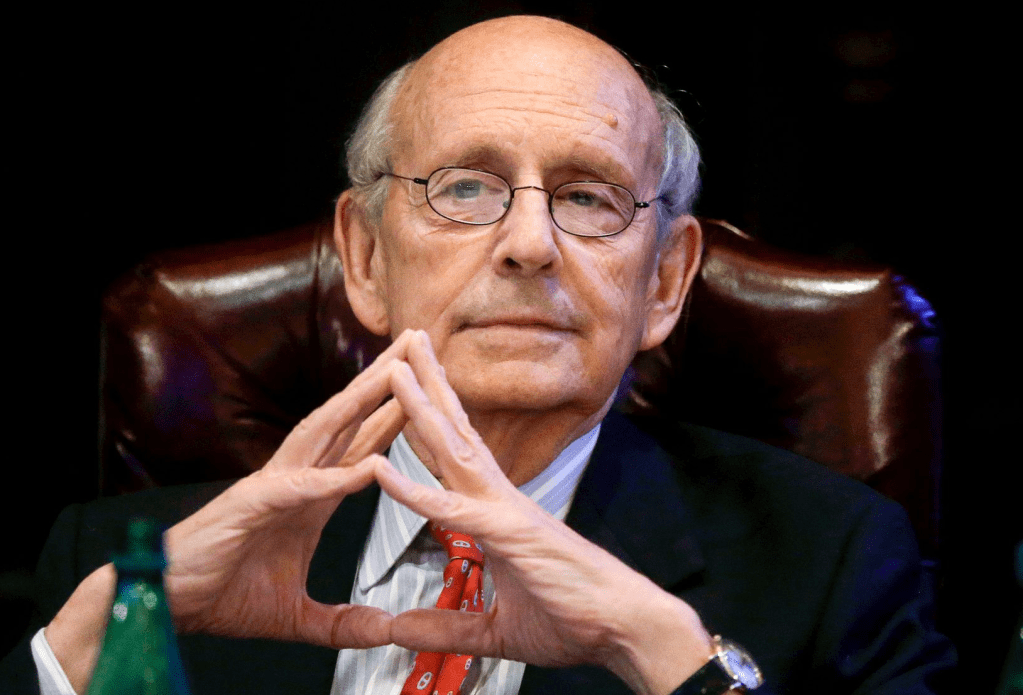When presented with the opportunity to make a sophomoric point and a serious one, I alway like to begin with the juvenile.
Have you ever noticed the resemblance between Supreme Court Justice Stephen Breyer and Mr. Burns?
Uncanny. Ok, now that that’s out of the way, let’s take up this issue of Breyer’s retirement — or, more to the point, his apparent decision to stick around for awhile longer.
I’ll admit that I’ve been among those who thought that Breyer, 82, should step down and allow Pres. Joe Biden to appoint a much younger liberal jurist to the court. In fact, all kinds of liberal groups were trying to pressure the liberal justice to do just that. But since he passed on announcing his retirement at the end of the term, when justices often do that, and since he’s hired a full slate of law clerks for the next term, it would seem he’s not going away.
It’s entirely possible that the pressure for him to leave backfired. Breyer is known as an institutionalist who abhors the politilization of the court. If Breyer had retired now it would have added more fuel to that fire — the idea that the court is not a nonpartisan and independent referee, but just like the other two branches of government. His retirement would have strengthened the image of the court as just another partisan institution — and that would have caused a whole lot more long-term damage to our democracy than the possibility that he’ll be replaced some day by a conservative.
In fact, the conservative justices appointed by Donald Trump have proven to be somewhat less partisan and predictable than Republicans had hoped. They summarily dismissed Trump’s ludicrous attempts to use the courts to overturn his election defeat. And, in one of their most high profile decisions, Justice Brett Kavanaugh wrote the court’s opinion weakening the NCAA’s hold over how college athletes can be compensated for their services, a position that is clearly progressive.
In a July 9th essay in Persuasion, a University of Chicago Law School professor argues that the Court had been less political and predictable than many had feared. “Understandably, the conventional wisdom on much of the left seems to have become that the Supreme Court is a partisan institution, that the justices are simply politicians in robes, and that with a 6-3 majority, the court’s conservatives will be a rubber stamp for Republican priorities and a barrier to Democratic ones,” wrote Tom Ginsburg. “But the most recent Supreme Court term paints a more nuanced portrait of the court. Surprising coalitions among justices, careful case selection, and relatively few decisions dividing the court along ideological lines point to an institution that is trying to bolster its nonpartisan legitimacy. The justices seem to be refuting the idea that they are partisan actors in an ostensibly nonpartisan institution.”
Now, there’s no reason to think that a Biden nominee wouldn’t join in this apparent attempt to keep the court at least somewhat removed from partisan politics. But Breyer is already there and already doing that. And by refusing to step down for what would be obvious political reasons, he’s bolstering the image of the court as nonpartisan. That’s a good thing.
Would Charles Montgomery Burns do the same? I think not. He’d release the partisan hounds.
Welcome to the 157th consecutive day of posts here at YSDA. Thanks for reading!


The hope with the lifetime appointments of justices is that these justices will set aside partisan politics and form opinions that are reasoned and in accord with proper jurisprudence. I held out little hope that the recent GOP appointments would be anything other than shills for conservative politics, but perhaps Justice Roberts (and the sense of legacy that a SC life appointment brings) has enabled some on the right to embrace reason and more centered opinions, such as the recent forays into DACA and the ACA. The quality or predictability of the current SC is still not great, but maybe not as judicially precarious as many might have thought.
LikeLike